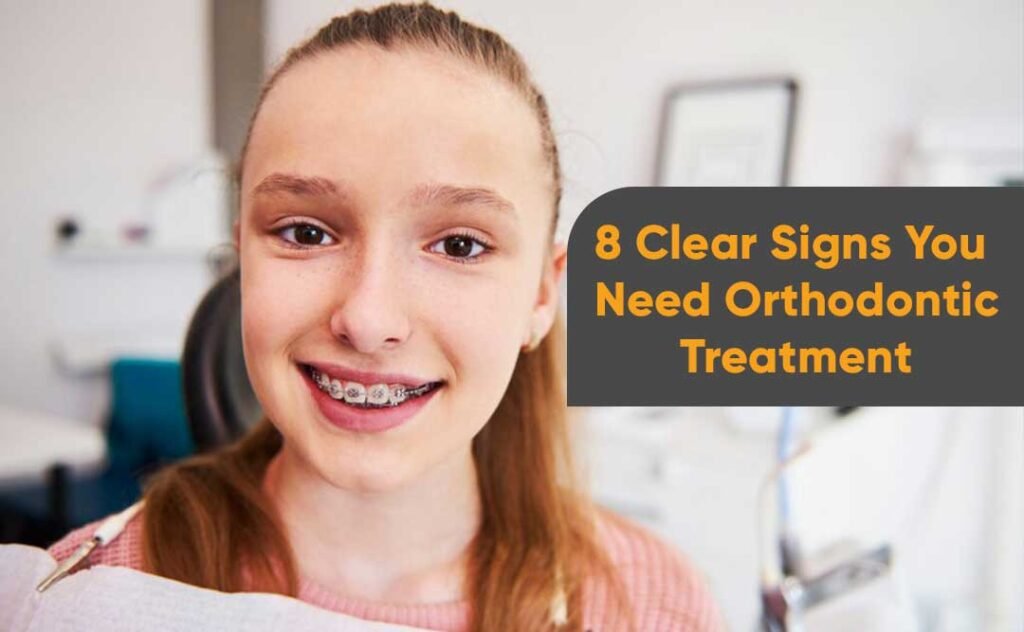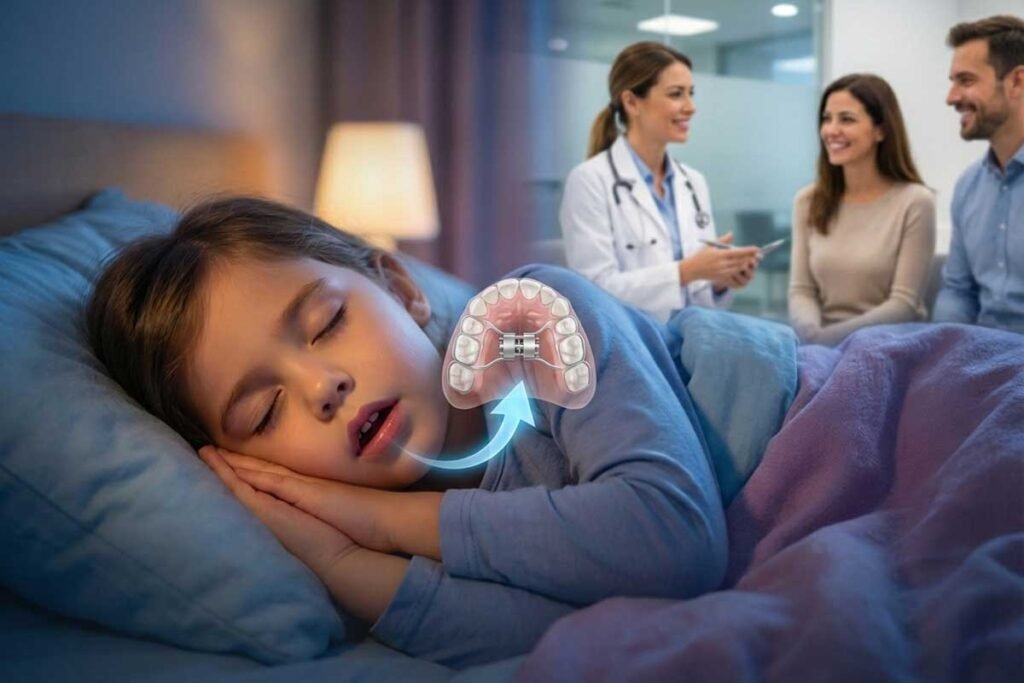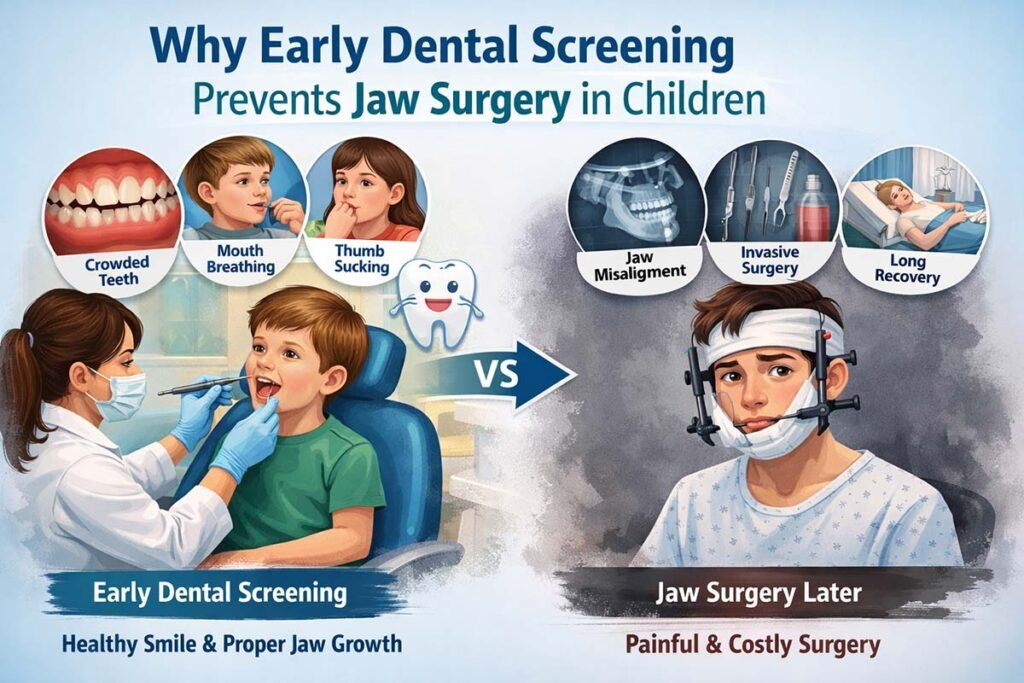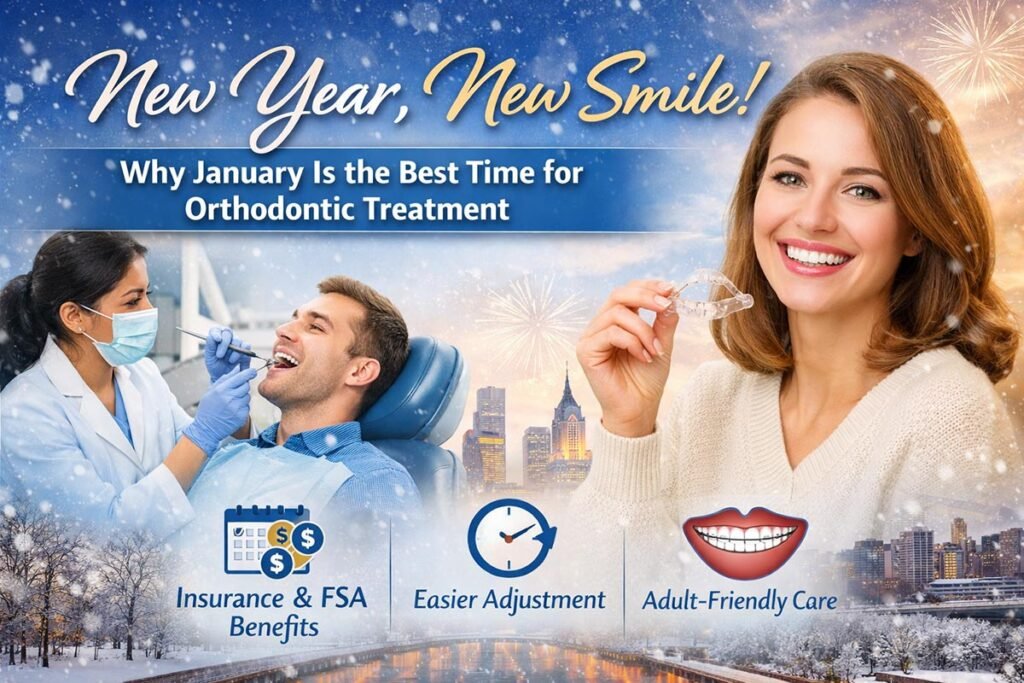How to Know If You Need Orthodontic Treatment: Expert Tips from Philadelphia Orthodontists
Orthodontic treatment is about more than just straightening your teeth for cosmetic reasons. It’s about achieving a healthier, more functional smile. If you’re wondering whether you need orthodontic care, you’re not alone. Many people, from children to adults, find themselves asking if they should seek orthodontic treatment. If you live in Philadelphia and are considering whether braces or clear aligners are right for you, our expert orthodontists at Art of Smile Philadelphia can help guide you.
In this blog, we’ll walk you through some common signs that indicate you may need orthodontic treatment and how we can help improve your smile and overall oral health.
1. Your Teeth Are Crowded, Overlapping, or Have Gaps
Crowded teeth, gaps between teeth, and overlapping teeth are some of the most common reasons people seek orthodontic treatment. If your teeth overlap or are placed too closely together, it can be difficult to properly clean between them, leading to a higher risk of tooth decay and gum disease. Additionally, spaces between your teeth can affect your smile’s aesthetic and lead to difficulty chewing or speaking.
Why does this happen? Crowding usually occurs when your teeth don’t have enough room to align properly. This can happen due to genetics, early loss of baby teeth, or thumb-sucking habits during childhood. On the other hand, gaps between teeth may occur when teeth are smaller or your jawbone is larger than normal.
Why does this affect you? When your teeth are crowded, it’s harder to clean them thoroughly, leading to plaque buildup, cavities, and gum issues. On the flip side, when there are significant gaps between your teeth, it can create food traps and increase your risk of gum disease.
How orthodontics can help: Braces or clear aligners can gently reposition your teeth into more optimal positions, improving both function and appearance. By creating more space between crowded teeth or filling gaps, orthodontics allows for easier cleaning and can significantly reduce oral health problems.
2. Your Bite Doesn’t Align (Overbite, Underbite, Crossbite, Open Bite)
A misaligned bite is a common reason to consider orthodontic treatment. If your upper and lower teeth don’t come together properly, it can lead to discomfort, jaw problems, and difficulty eating or speaking.
Common bite issues include:
- Overbite: When your upper teeth extend too far over your lower teeth.
- Underbite: When your lower teeth are positioned in front of your upper teeth.
- Crossbite: When some of your upper teeth sit behind your lower teeth when you bite down.
- Open bite: When your upper and lower teeth don’t meet at all when you bite down, causing difficulty chewing, as well as speech issues like lisping.
Why does this happen? Misalignment can occur due to uneven growth of the upper and lower jaws, genetics, premature tooth loss, or habits like thumb-sucking.
Why does this affect you? Misalignment can make it difficult to chew properly, leading to discomfort and potential digestive issues. An open bite, for example, can lead to difficulties with eating and talking. A misaligned bite can also cause jaw pain, headaches, and even speech problems, such as lisping, due to the improper positioning of the teeth.
How orthodontics can help: Orthodontics can reposition your teeth to correct bite problems, improving how your teeth come together. Whether you have an overbite, underbite, crossbite, or open bite, treatment can help you chew, speak, and live more comfortably while reducing strain on the jaw muscles.
3. You Experience Jaw Pain, Headaches, or Teeth Grinding
If you often feel discomfort or pain in your jaw or experience frequent headaches, you may have a misaligned bite. Jaw pain or even neck and shoulder pain can stem from teeth grinding (bruxism) or TMJ (temporomandibular joint) disorders, which are often caused by improper bite alignment.
Why does this happen? When your teeth don’t align properly, it puts extra pressure on the muscles in your jaw and head, leading to discomfort or pain. Misalignment can also cause teeth to wear unevenly, contributing to further discomfort.
Why does this affect you? Jaw pain and headaches can be debilitating, affecting your ability to carry out normal daily activities. Over time, if left untreated, these problems can develop into more serious conditions like TMJ disorders or even chronic pain.
How orthodontics can help: Orthodontic treatment realigns your teeth to reduce pressure on the jaw muscles, alleviating pain and minimizing the risk of developing long-term issues like TMJ. By improving your bite, orthodontics can help prevent future discomfort and provide relief from jaw pain and headaches.
4. You’re Self-Conscious About Your Smile
While orthodontic treatment is often sought for health reasons, many patients are motivated by the desire to improve the appearance of their smile. If you feel like your teeth are crooked, spaced out, or misaligned, it may be affecting your confidence and making you avoid smiling.
Why does this affect you? Feeling insecure about your smile can impact your self-esteem, making social situations uncomfortable and even affecting your professional life. A lack of confidence can diminish your quality of life.
How orthodontics can help: Orthodontics offers the solution to a straighter, more attractive smile. Whether you opt for traditional braces or clear aligners, orthodontic treatment can boost your confidence by improving the appearance of your smile.
5. Difficulty Chewing or Biting Certain Foods, Including Open Bite Issues
If you struggle to bite into or chew certain foods, or if you have difficulty biting down at all, this could be due to a misaligned bite, such as an open bite. In an open bite, your upper and lower teeth don’t touch, making it difficult to chew or speak properly. This can also cause speech problems, like lisping, and can limit your ability to enjoy certain foods.
Why does this happen? A misaligned bite may prevent your teeth from making full contact when you bite down. This can make chewing certain foods painful or even impossible.
Why does this affect you? An open bite can create significant difficulties with eating and speaking, affecting your daily life. The inability to chew properly can also lead to tooth wear and TMJ issues over time.
How orthodontics can help: Orthodontics can bring your teeth into better alignment, helping to eliminate chewing difficulties and correcting speech issues related to misalignment. Whether you have a deep bite, open bite, or another bite problem, orthodontics can improve your ability to eat and speak comfortably.
6. Teeth Are Wearing Down Prematurely
If your teeth are wearing down, getting chipped, or showing signs of premature enamel erosion, this could be a sign of misalignment. When teeth don’t line up properly, they may rub against each other unevenly, accelerating wear and tear.
Why does this happen? When your teeth are misaligned, they may not come together as they should, causing unnatural friction that leads to enamel damage, tooth sensitivity, or even tooth loss.
Why does this affect you? Premature tooth wear can cause discomfort, sensitivity, and may eventually require dental restorations, such as crowns or fillings.
How orthodontics can help: Orthodontic treatment can align your teeth in a way that reduces wear and tear, protecting your enamel and preserving the health of your teeth for the long term.
7. You Grind Your Teeth Frequently (Bruxism)
Teeth grinding, or bruxism, often occurs due to stress or misalignment. It may happen during the day, but is most common at night. If you grind your teeth frequently, you could be causing damage, tooth sensitivity, headaches, and jaw pain.
Why does this happen? Misaligned teeth can prevent your teeth from coming together properly, which may cause discomfort and lead to grinding.
Why does this affect you? Bruxism can damage your teeth and jaw, causing long-term dental issues. It can also disrupt your sleep, leading to further health complications.
How orthodontics can help: By aligning your teeth, orthodontic treatment can reduce discomfort, alleviate grinding, and prevent future damage to your teeth and jaw.
8. Sleep Apnea and Snoring Due to Jaw Development Issues – in children as well as adults
Did you know that orthodontic treatment can help with sleep apnea and snoring caused by improper jaw development? Smaller or misaligned jaws can obstruct airflow during sleep, leading to snoring and sleep apnea, which can negatively impact your overall health.
Why does this happen? A small or misaligned jaw can restrict the airway, making it harder to breathe while sleeping.
Why does this affect you? Sleep apnea and snoring disrupt your sleep, leading to tiredness, irritability, and even more serious health conditions like heart disease.
How orthodontics can help: Orthodontic treatment can help reposition the jaw and teeth to open the airway, improving your sleep quality and reducing snoring or sleep apnea symptoms.
When Should You Visit an Orthodontist?
If you’ve noticed any of the signs mentioned above, it may be time to schedule a consultation with an orthodontist. At Art of Smile Philadelphia, our expert orthodontic team is here to help you assess your needs and develop a personalized treatment plan to get your smile on track.
Even if you don’t have all of the symptoms listed above, regular checkups with an orthodontist can help catch issues early on, preventing more significant problems down the road.
Why Choose Art of Smile Philadelphia?
At Art of Smile Philadelphia, we’re committed to providing top-notch care to every patient. Our team of orthodontic specialists is experienced in treating both children and adults, offering customized solutions to fit your specific needs. Whether you need traditional braces, clear aligners, or another orthodontic solution, we’re here to guide you every step of the way. Orthodontics is not just about aesthetics; it’s about improving your overall health and quality of life. Don’t wait to get the smile you deserve—contact us today to schedule your consultation.



